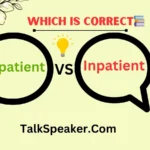Last updated on October 21st, 2024 at 03:12 pm
In today’s digital age, professional email communication is a cornerstone of business interactions. With every email you send, the choice of words can significantly impact how your message is perceived. One phrase that often comes up in professional correspondence is “well received.” But is it the best choice for your emails?
This article explores the phrase “well received,” its appropriateness in professional settings, and suitable alternatives to enhance your email communication.
Understanding “Well Received”
Definition and Origin
The phrase “well received” means that something has been positively acknowledged or accepted. It is used to convey that a message, proposal, or idea was met with approval or appreciation. The term has been part of the English language for centuries, with its roots in polite and formal communication.
Example:
- “Your proposal was well received by the team.”
Typical Usage in Communication
“Well received” is commonly used in both formal and informal contexts to indicate that something has been positively accepted. It often appears in feedback, responses to submissions, or discussions of proposals.
Example:
- In a feedback email: “Thank you for your presentation; it was well received by everyone.”
Appropriateness in Professional Settings
General Guidelines for Professional Email Language
In professional communication, clarity and formality are paramount. You want your message to be respectful, clear, and appropriate to the context. Typical phrases in professional emails include:
- “Thank you for your feedback.”
- “We appreciate your input.”
- “Your proposal is under review.”
Evaluating the Phrase “Well Received”
While “well received” can be a polite and positive phrase, it may not always be the best choice for every situation. Here’s a breakdown:
Situations Where “Well Received” Might Be Suitable
- Acknowledging Feedback: When you want to indicate that someone’s feedback or suggestions have been accepted positively.
- Confirming Receipt: When confirming that a message, document, or proposal has been received and acknowledged favorably.
Example:
- “Thank you for the updated report; it was well received by the project team.”
Situations Where Alternatives Might Be Better
- In Formal Proposals: In formal business proposals or important communications, a more specific acknowledgment might be appropriate.
- When Providing Detailed Feedback: Instead of saying something was “well received,” it may be more helpful to specify what aspects were appreciated.
Example:
- Instead of “Your proposal was well received,” you might say, “We found your proposal’s detailed analysis particularly useful.”
Struggling with English? Elevate your skills with our expert guides and tips—unlock your potential At Talk Speaker!
Alternatives to “Well Received”
Contextual Alternatives
Depending on the context, other phrases might better convey your message. Here are some alternatives to consider:
- “Appreciated”: Indicates that something has been valued or acknowledged.
- “Favorably received”: Suggests a positive reception with a bit more formality.
- “Accepted with gratitude”: Shows appreciation with a more personal touch.
Example:
- “Your feedback on the project was greatly appreciated.”
When to Choose Different Phrases
Selecting the right phrase depends on your email’s context and audience. Here’s a guide to choosing appropriate alternatives:
- Formal Proposals: Use “favorably received” or “appreciated.”
- Casual Updates: Use “thanks for the feedback” or “glad to hear your thoughts.”
Example:
- For a proposal update: “We are pleased to inform you that your proposal was favorably received by our review committee.”
Practical Examples
Case Studies
Case Study 1: Formal Business Correspondence
Scenario: A company sends a proposal to a client.
Email Content:
- “Dear [Client], We appreciate your review of our proposal. Your feedback was favorably received and will help us tailor our services to better meet your needs.”
Case Study 2: Follow-Up Emails and Feedback
Scenario: Providing feedback on a presentation.
Email Content:
- “Hi [Name], Thank you for the presentation. Your ideas were well received, especially your approach to the market analysis.”
Case Study 3: Acknowledging Receipt of Documents
Scenario: Confirming receipt of documents.
Email Content:
- “Hello [Name], I wanted to confirm that your documents were received and are under review. They were well received by our team.”
Do’s and Don’ts
Do’s:
- Be specific about what was appreciated or acknowledged.
- Tailor your language to the recipient and context.
- Maintain a professional tone throughout.
Don’ts:
- Avoid vague or overused phrases.
- Don’t use “well received” if it doesn’t fit the formality of the situation.
- Steer clear of overly casual language in formal emails.
Best Practices for Professional Email Communication
Tone and Clarity
Tone: Ensure your email maintains a professional and respectful tone. Avoid jargon or overly complex language.
Clarity: Be precise and straightforward. Avoid ambiguity by clearly stating your points and intentions.
Cultural Considerations
Different cultures may have varying expectations for email communication. What’s considered polite or formal in one culture may not be the same in another. Be mindful of:
- Cultural Norms: Adapt your language to the recipient’s cultural expectations.
- Formality Levels: Adjust the formality of your language based on the recipient’s position and cultural context.
Conclusion
In summary, while “well received” is a polite and positive phrase, it’s essential to consider its appropriateness based on context and formality. By understanding when and how to use it—or its alternatives—you can enhance your professional email communication. Tailor your language to suit the situation, and always aim for clarity and respect in your correspondence.
Recommendations for Email Communication:
- Use “well received” when confirming positive acknowledgment in informal settings.
- Opt for more specific phrases in formal proposals or detailed feedback.
- Always adapt your language to the context and recipient for the best results.

Sophie Mitchell, a seasoned English educator, brings her passion for language and years of teaching expertise to TalkSpeaker. With a knack for simplifying grammar and expanding vocabulary, she empowers learners to master English with confidence.




